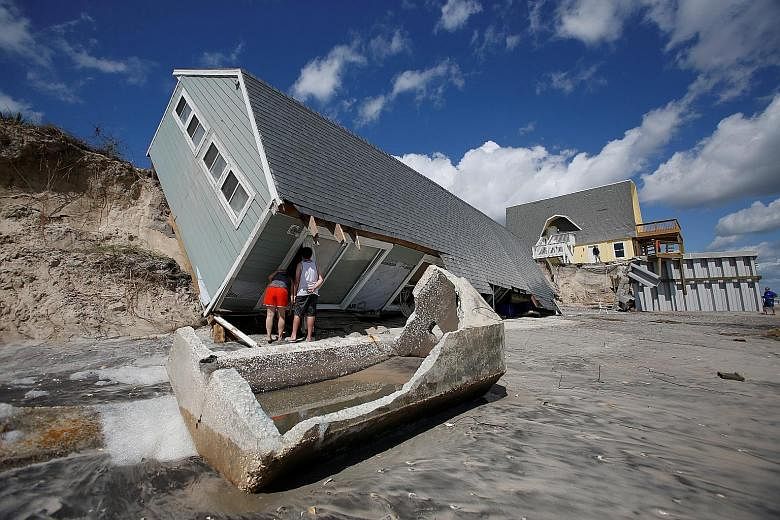ATLANTA • The two massive storms brought death, suffering and damage that will be measured in billions of dollars. They left millions of residents cowering in their homes to ride out pounding rain, and left evacuees - hundreds of thousands of them - scattered across Texas and the south-east.
At the same time, hurricanes Harvey and Irma may have revealed a truth often buried under the news of unfolding tragedy: The United States appears to be improving in the way it responds to hurricanes, at a time when climate scientists say the threats from such storms, fuelled by warming oceans, are growing only more dire.
For all the chaos, the death toll from Harvey and Irma has remained surprisingly contained - about 85 thus far in Florida and Texas.
"There is no doubt that we are doing better," said civil engineering professor and evacuation expert Brian Wolshon at Louisiana State University.
"The stuff we are doing is not rocket science, but it is having the political will, and the need, to do it."
The political will he cited has arisen, in large part, from the two defining and very different disasters of the century: the Sept 11, 2001 terrorist attacks and, four years later, Hurricane Katrina, whose flood waters put most of New Orleans underwater and left more than 1,800 people dead.
The terrorist attacks in New York, Washington and Pennsylvania revolutionised the way the government coordinated disaster response. Katrina stimulated a new and robust conversation about the power of natural disasters and, more specifically, forced Americans to rethink the growing threats from flood waters.
These issues have become central themes for the government in recent years, and Mr Richard Serino, former deputy administrator of the Federal Emergency Management Agency, said he was not surprised that the response to the storms thus far has gone relatively well.
"It is no accident," he said. "We have been training people for this for the last 16 years."
These events, and other disasters before and after, have fed into the collective knowledge of how a modern nation should respond to hurricanes, serving as catalysts for improvements in weather forecasting, evacuation policies and hurricane-resistant building practices.
Both Texas and Florida probably also benefited from the growth and sophistication of the federal Department of Homeland Security, and the training that even tiny communities have undergone since 9/11.
Experts said all these most likely played a role in keeping the death toll lower than expected in the past few weeks.
The planning and response also benefited from a few lucky turns in the weather, the growing sophistication of personal technology - the iPhone did not exist when Katrina struck - and a public dialled in to the Internet and tuned into 24-hour television news.
Coastal hazard scientist Hal Needham, who runs a private consulting business in Galveston, Texas, noted that it was not until after World War II that populations began to soar in the hurricane-vulnerable states of Texas and Florida.
Today, lawmakers enjoy better weather forecasts but now face the problem of what to do with millions of people who may lie in a storm's path.
NYTIMES

